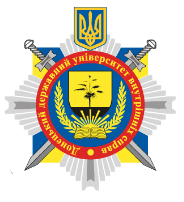ПРО ЗМАГАЛЬНІСТЬ СТОРІН У ПРОВЕДЕННІ СУДОВОЇ ЕКСПЕРТИЗИ
DOI:
https://doi.org/10.32782/2523-4269-2022-78-1-139-145Ключові слова:
збирання доказів; змагальність; судова експертиза; сторона захисту; сторона обвинувачення.Анотація
Аналізуються суперечності в чинному Кримінальному процесуальному кодексі України щодо самостійного залучення стороною захисту експертів на договірних умовах для проведення експертизи. Оцінюються пропозиції науковців щодо їх усунення. Зазначається, що наділення сторони захисту правом проведення слідчих дій фактично створює два паралельних досудових розслідування з вирішенням конкуруючих завдань. Підкреслюється важливість не забезпечення повної рівності прав сторін кримінального провадження щодо проведення експертиз, а збалансування прав з урахуванням тих завдань, що вирішуються сторонами. Обґрунтовується пропозиція надання стороні захисту не тільки права ініціювання експертиз, але й права на здійснення адвокатського контролю за їх проведенням. Це передбачає обов’язкове ознайомлення сторони захисту з постановою слідчого про призначення експертизи, а також із висновком експерта й подання клопотання слідчому судді в разі незгоди чи сумнівів у достовірності висновку експерта. Процедура ознайомлення із вказаними процесуальними документами повинна фіксуватися у відповідних протоколах. Резюмується, що за такого правового врегулювання процедури проведення експертиз не виникатиме потреби в самостійному залученні експерта захистом на договірних умовах і у витрачанні на це особистих коштів. Для реалізації наведених пропозицій запропоновано удосконалену редакцію статей 242–244 КПК України.
Посилання
Про внесення змін до деяких законодавчих актів України щодо вдосконалення окремих положень кримінального процесуального законодавства : Закон України від 04.10.2019 № 187-IX. URL: https://zakon.rada.gov.ua/laws/show/187-20#n42 (дата звернення: 15.12.2021).
Журавель В. А. Залучення експерта: процесуальні та організаційні проблеми. Вісник Луганського державного університету ім. Е. О. Дідоренка. 2014. Спецвип. № 1. С. 16–20.
Моїсєєв О. М. Проблеми, пов’язані із залученням судового експерта до участі в кримінальному провадженні. Ученые записки Таврического национального университета им. В. И. Вернадского. Серия «Юридические науки». Том 27 (66). 2014. № 3. С. 194–203.
Куриленко Д. В. Сучасні проблеми залучення експерта у кримінальному провадженні. Науковий вісник публічного та приватного права. Вип. 2. Ч. 2. 2016. С. 331–334.
Ріпенко А. Судова експертиза: які зміни чекаємо наприкінці року? URL: http://blog.liga.net/user/aripenko/article/28826.aspx (дата звернення: 09.12.2021).
Сімакова-Єфремян Е. Б. Деякі проблемні питання застосування нових норм з питань призначення та проведення судової експертизи. URL: http://ondise.od.ua/DOC/vipusk3/pitannyaprizna4enyataprovedennyaexpertizi.pdf (дата звернення: 09.12.2021).
Макаренко Є. І., Здор В. М. Проблеми призначення судової експертизи у кримінальному провадженні. Право і суспільство. 2019. № 3. С. 218–222.
Щербаковський М. Г. Проведення та використання судових експертиз у кримінальному провадженні : монографія. Харків : В деле, 2015. 560 с.
Ярошенко Сергій. Кримінальний процес: чи існує принцип змагальності? Юридична газета. 2021. № 26 (628). URL: https://colares.ua/ua/news/kriminalniy-process-chy-isnuye-pryncyp-zmagalnosti (дата звернення: 15.12.2021).
Щербаковский М. Г., Щербаковская Л. П. Состязательные начала привлечения эксперта в уголовном судопроизводстве Украины. Ученые записки Таврического национального университета им. В. И. Вернадского. Серия «Юридические науки». 2013. Т. 26 (65). № 1. С. 327–330.
Кучинська О. П. Проблеми захисту прав потерпілих у кримінальному процесі України. Адвокат. 2009. № 5. С. 10–12.
Яновська О. Г. Особливості кримінальних проваджень у формі приватного обвинувачення за новим Кримінальним процесуальним кодексом України. Часопис Київського університету права. 2013. № 1. С. 242–245.
Авдєєва Г. К. Місце судової експертизи у науково-технічному забезпеченні слідчої діяльності в умовах змагального кримінального провадження. Питання боротьби зі злочинністю. 2021. Вип. 41. С. 88–93.
Зейкан Я. П. Про недопустимі докази. Х. : Фактор, 2019. 128 с.





